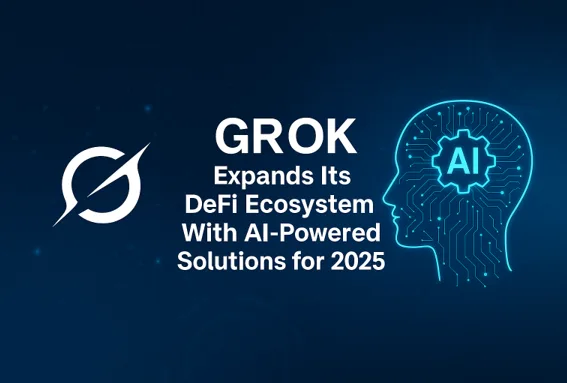Why Proof of Income Matters in Today’s Economy
In an age of economic uncertainty, volatile labor markets, and rising costs of living, the notion of proving one’s income has never been more important. Whether you are applying for a home, seeking a loan, pursuing freelance work, or qualifying for social benefits, demonstrating reliable income is a cornerstone of modern financial credibility. In this guest post, we explore why proof of income matters in today’s economy, the challenges of doing so, and the ways technology is helping to simplify the process.
The Stakes: Why Income Proof Matters More Than Ever
1. Lender and Credit Risk Assessment
Banks, credit unions, and financial institutions rely heavily on proof of income to assess credit risk. When a borrower applies for a mortgage, auto loan, or line of credit, the lender needs to know whether the applicant has a sustainable income stream to service the debt. Without solid documentation showing consistent earnings, the risk of default increases.
In the post-2008 financial landscape, regulators tightened requirements to guard against irresponsible lending. Proof of income is no longer just a convenience; it is a necessity for approval.
2. Rental Market and Housing Access
Landlords and property management firms typically require proof of income before signing rental contracts. This protects them from tenants who may fail to pay. In high-demand urban regions, a prospective renter who cannot produce pay stubs or equivalent documentation may lose access to desirable housing options. In effect, income verification becomes an access barrier to basic shelter.
3. Contracting, Freelancing, and the Gig Economy
As many workers now earn income piecemeal or through gig platforms, the traditional employer-issued wage slip is often absent. Still, service providers, clients, or leasing agencies may ask for income proof to evaluate legitimacy. In this environment, tools and methodologies for verifying nontraditional earnings matter greatly.
4. Government Programs, Subsidies, and Social Safety Nets
Whether for unemployment benefits, public housing, tax credits, or medical assistance, governments need to verify that applicants’ claims of financial need and eligibility are genuine. Reliable proof of income helps policymakers and administrators distribute limited resources fairly and avoid fraud.
5. Fraud Prevention and Compliance
In today’s world, document fraud is a real threat. Institutions must comply with anti-money laundering (AML), Know Your Customer (KYC), and other regulatory mandates. Authentic and verifiable proof of income helps reduce risks of identity theft, synthetic fraud, or false reporting.
Roadblocks in Verifying Income
While the need is clear, actually proving income reliably is often fraught with difficulties:
- Variable or irregular income: Freelancers, contractors, commission-based workers, and gig economy participants may have fluctuations in monthly pay. Anchoring a single snapshot can mislead.
- Lack of formal documentation: Some sectors, such as informal labor, cash-based trades, or startups, do not issue traditional pay stubs or tax forms.
- Delay or lag in reporting: Annual tax returns tell a historical story, but may not capture the current ability to pay.
- Fraudulent documents or manipulation: Forged or doctored slips could misrepresent reality.
- Privacy and security concerns: Users may hesitate to share sensitive financial data with third parties.
To mitigate these challenges, financial institutions often require multiple proofs, such as bank statements, tax returns, invoice records, or employment verification letters as cross-checks.
How Technology Is Improving the Landscape
Innovations in digital finance and document automation are turning the tide. Verification platforms can now analyze and validate income data with greater speed and confidence. For instance:
- Document scanning and OCR (optical character recognition) can digitize paper slips and extract key fields.
- APIs can integrate directly with payroll systems or banking feeds to validate real-time flows.
- Machine learning and fraud detection algorithms flag anomalies or discrepancies.
- Automated workflows let users upload files and get approved faster.
Such tools are especially valuable when generating a paystub template for small businesses or contractor contexts. They also help when using a paystub generator to produce a legitimate and standardized income slip from raw payroll data. These templates and generators formalize income records where employers may not otherwise issue conventional pay stubs, provided they are used responsibly and with compliance in mind.
Why Proof of Income Impacts Economic Equality and Stability
The importance of income verification stretches beyond individual transactions. At a broader scale:
- Reducing inequality and credit gaps: People without access to formal income documentation, often lower-income citizens, are excluded from credit, housing, and business opportunities.
- Enhancing financial inclusion: Better and more accessible means to prove income can bring underserved populations into the formal banking and credit system.
- Stabilizing markets: Strong underwriting based on verified data reduces default risks, supporting healthier financial markets overall.
- Encouraging transparency and accountability: When income verification is standard, trust in financial systems grows, and opaque practices decline.
Best Practices for Individuals and Organizations
- Maintain consistent records: Save pay stubs, bank statements, invoices, and tax documents systematically.
- Use trusted service providers: If you rely on online tools to create income documents, choose reputable, audited, and secure platforms.
- Diversify proof sources: Present multiple corroborating documents such as bank deposits, invoices, or tax filings.
- Stay transparent and honest: Avoid inflating or fabricating income, as the legal, ethical, and financial risks are high.
- Educate clients, employees, or tenants: Encourage partners to maintain formal income documentation so everyone is positioned better for scrutiny.
Conclusion
In today’s interconnected economy, proof of income matters not just as a procedural hurdle but as a gateway to opportunity. Whether you are a loan applicant, landlord, gig worker, or policy administrator, the ability to produce credible income documentation is central to building trust and mitigating risk. With the rise of digital tools, including structured paystub templates and automated paystub generators, access to reliable records has become easier, provided integrity and accuracy are preserved.
Making income verification accessible, secure, and reliable is no longer optional. It is an individual necessity and a societal imperative that shapes financial access and fairness across the globe.






